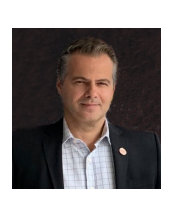Course: Application of Rocscience Software Tools in Geotechnical Practice
Course Details
- Date: March 7-8, 2024
- Venue: Divani Caravel Hotel, Leof. Vasileos Alexandrou 2, Athina 161 21, Greece
- Schedule: 8:30 am to 5 pm
- Instructors: Dr. Anıl Yunatcı (Senior Geotechnical Engineer, GeoDestek Ltd. Şti) and Dr. Vassilios Marinos (National Technical University of Athens)
- Programs Covered: Slide2, Slide3, RS2, RS3, RocSlope3, RocSupport
- Registration Fees:
- Early Bird Price - USD$635 (until February 10, 2024)
- Regular Price - USD$745
What’s included:
- Temporary software licenses
- PDF of course materials
- PDH Certificate
- Lunch & Snacks
Please note:
- Registrants will be responsible for their own accommodation
- Participants must bring their own laptops (and mice)
- Participant numbers are limited
Course Outline
Module 1: Introduction and Keynote Lecture
- Opening Speech, Introductory Remarks, Course Objectives
- Keynote Lecture (Prof. Vassilios Marinos, National Technical University of Athens)
Module 2: Deep Excavation Design and 2D Support Analysis
- Model Development (Construction of Geometry, Meshing, Loads and Boundary Conditions, Analysis Options)
- 2D Deep Excavation Model Generation: Providing Lateral Support with Prestressed Ground Anchors
- Using Advanced Constitutive Relations in Modeling Deep Excavations
- Deep Excavation Modeling Using Struts
- Modeling Groundwater in Deep Excavation Design: Seepage, Flow Lines
- Interpretation of Results
Module 3: Limit Equilibrium Approach in 2D/3D Slope Stability Assessment
- Basics of LE Approach in Slope Stability Assessment
- Failure Modes of Soil and Rock Slopes
- Factor Safety, Risk-Based Design and Reference to Design Codes
- Overview of Geometry Search Options and Optimization Techniques
- Material Strength Models
- Limit Equilibrium Based Slope Stability Assessment of Anisotropic Rock Masses
- Weak Layer Definitions
- Steady State and Transient Groundwater Flow Modeling Options for Slope Stability Assessment Using Finite Elements
- 3D vs 2D Analysis of Slope Stability
Module 4: Analyzing Block Failures in Rock Masses: 3D Block Stability Assessment Using RocSlope3
- Defining Field Measurement Based or Synthetic Discontinuity Sets for Rock Masses
- Discussion on Generating a Discrete Block Model and Associated Uncertainties
- Model Generation and Interpretation of Preliminary Analysis Results
- Probabilistic Block Stability Assessment and Countermeasure Design
Module 5: Analytical and 2D FE Analysis of Tunnel Sections: Basics
- Overview of Empirical Methods for Support Pattern Estimation
- Preliminary Assessment Tools for Modeling Underground Excavations
- 2D FE Simulation of Underground Excavations: Core Replacement, Internal Pressure and Load Split Approaches
- Defining Joints and Joint Networks for Rock Masses Around Tunnel Openings
- Tunnel Designer & Comparison with 3D Modeling Results
--
For any additional queries, please reach out to Dr. Anıl Yunatcı
--
Course Instructor:

Dr. Anıl Yunatcı, a senior geotechnical engineer at GeoDestek Ltd. Şti, boasts over 20 years of expertise in geotechnical earthquake engineering, seismic hazard assessment, numerical modeling, geotechnical monitoring, and soil investigation. Graduating with a Bachelor's degree in Civil Engineering in 1999 from Gazi University in Turkey, he later earned his Masters and Ph.D. in geotechnical engineering from Middle East Technical University, Turkey, in 2010.
Leveraging his research and teaching background, Dr. Yunatcı has been instrumental in organizing and developing customized Rocscience courses and workshops globally for the past six years. He has co-developed original technical material to create interactive, enlightening, and inspirational course flows, with a focus on maximizing participant benefits and enhancing their approach to numerical modeling in daily practice.
Having conducted numerous courses in Europe, Dr. Yunatcı is set to bring his expertise to Athens for the first time.

Vassilis Marinos, born in Athens in 1976, is the President of the International Association for Engineering Geology and the Environment (IAEG) for the 2023-2026 term. He serves as an Assistant Professor of Engineering Geology and Rock Mechanics at the National Technical University of Athens, School of Civil Engineering, Geotechnical Division.
With a Doctoral Degree from NTUA, an MSc in Engineering Geology from Imperial College, and a bachelor’s degree in Geology from the University of Athens, Vassilis has established himself as a distinguished figure in the field. His research interests include geotechnical classification and behavior of weak and complex rock masses, landslide hazard and risk analysis, natural gas pipelines, geotechnical databases for tunnels and urban environments, rock slope stability, and analysis of ground movement in mines.
Vassilis has authored over 100 papers in international journals, book chapters, and conferences, contributing significantly to the field. His professional experience spans consulting services for various projects, including highway projects, tunneling, rockfall and landslide analysis, and geohazards related to natural gas pipelines. Additionally, he actively engages in engineering geological work, covering mapping, geoengineering models, geotechnical classification, evaluation of ground investigation programs, geo-data processing, and the design of engineering structures in rock.
Mar 7, 2024 - Mar 8, 2024
Athens, Greece
The course will be conducted in English
- Early Bird: USD $645
(until Feb 10, 2024) - Regular: USD $745